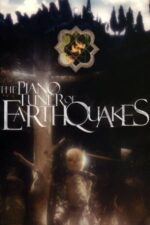Beyond the Veil: Exploring the Afterworld in Cinema
Okay, let's talk about the afterworld. Not just in a "heaven or hell" kind of way – though that’s certainly part of it – but as a recurring obsession in cinema. It’s fascinating how consistently filmmakers have grappled with what comes next, using film to probe our deepest anxieties and hopes surrounding mortality. Think about it: humans are storytelling creatures, and the fear (and desire) for immortality has fueled narratives since… well, forever.
The concept of an afterworld isn't always literal in film. Sometimes it’s a metaphorical space – a place representing memory, regret, or even a distorted version of reality shaped by grief. Take The Piano Tuner of Earthquakes, for example. While ostensibly a horror fairytale, it presents a chilling vision that feels like an afterlife constructed by obsession and madness. The surgeon's "re-engineering" of the opera singer isn’t just about creating a mechanical bird; it’s about trying to control something intangible—art, beauty, even life itself—and trapping it within a fabricated reality. It echoes how our memories can warp and distort over time, becoming less accurate representations and more emotional landscapes we create for ourselves.
Beyond the gothic, consider films like A Ghost Story (2017). That's a deeply moving exploration of lingering, not necessarily as a supernatural phenomenon, but as an echo in space and time – a way of confronting grief and acknowledging our place within a larger continuum. It’s about how we are shaped by the people who came before us and the impact we leave behind. Then you have something completely different like What Dreams May Come (1998), which presents a lush, visually stunning depiction of an afterlife that’s… well, pretty gorgeous. While the film has its flaws (the pacing can be a bit uneven, let's be honest!), it really demonstrates the power of cinematic imagination in visualizing something inherently unknowable.
Even comedies occasionally brush against this theme! Think about films where characters experience near-death experiences, like Groundhog Day. It’s not explicitly an afterworld narrative, but the repeated loop forces him to confront his choices and find meaning – a kind of purgatory until he can get it right.
Ultimately, exploring the afterworld in film isn't just about escapism or providing answers. It's about reflecting our own human condition: our fears, our loves, our longing for something beyond ourselves. Each filmmaker approaches this weighty topic with their unique perspective – and that’s what makes it so endlessly compelling to watch.
So, next time you’re looking for a film to really think about, consider one that ventures beyond the veil. You might be surprised at what you discover—not just about the story onscreen, but about yourself too.




















